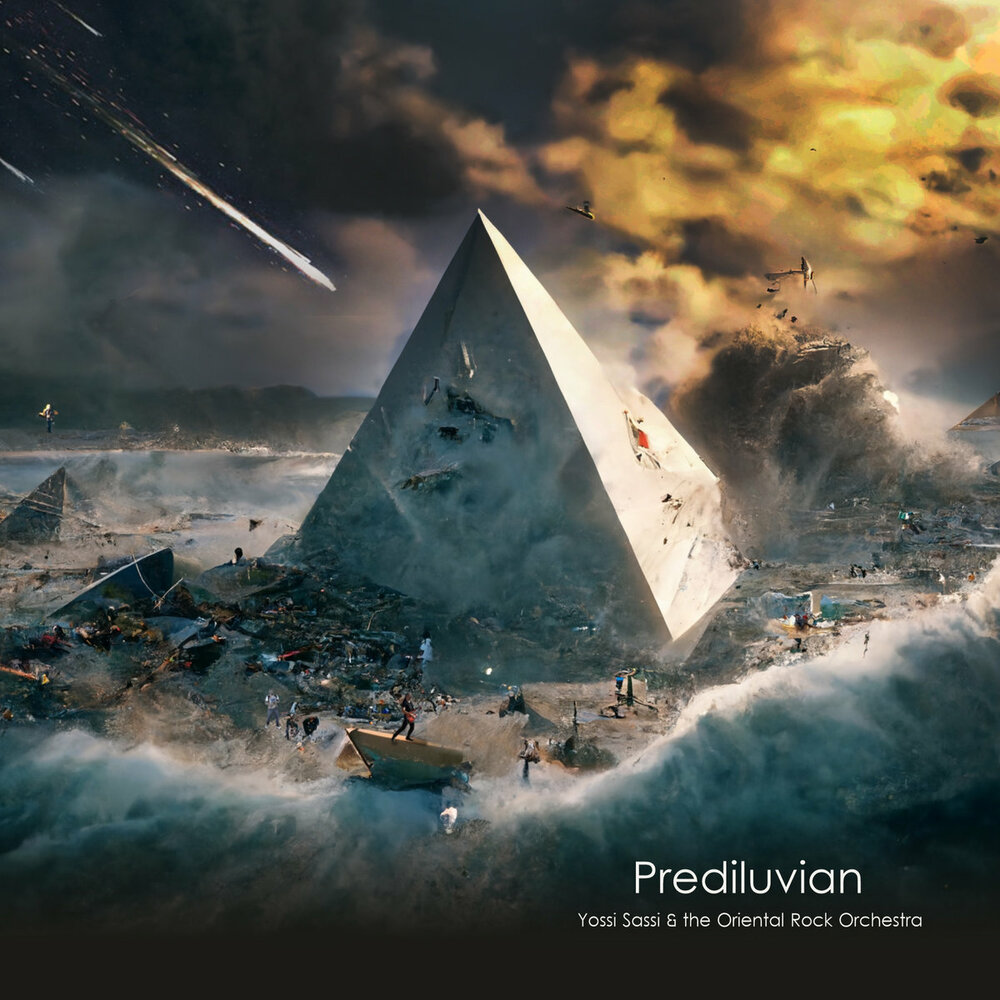 |
Country: Israel
Style: Symphonic Metal
Rating: 7/10
Release Date: 1 Mar 2024
Sites: Bandcamp | Facebook | Instagram | Metal Archives | Tiktok | Twitter | YouTube
Now that Sonata Arctica have finally returned to playing power metal, there's a lot of symphonic metal in their sound, but here's an actual symphonic metal band. I mention that because I found them listed as pure symphonic metal but it's pretty clear from the outset that we can add folk to that as well. The intro, Genesis, which builds dynamically from piano to flutes to orchestral swell and eventually pipes, grows into that and the instrumental first half of the opening song proper, To All the Wilds, plays likewise. And then it gets really interesting.
There are two people in Vespertine, as far as I can tell, and, while they work together effectively, they appear to bring two completely different approaches to the band. Dawn Kadmiel is all about that symphonic folk. She provides all the orchestration, which shapes how this sounds; she plays a tasty violin; and she delivers her vocals clean with an eye on the folk tradition. Her colleague Ran Hameiri, who plays guitar and bass, is therefore tasked with heavying it up to add the metal side of things. He does that, but he does it through a mostly harsh voice and metal here is dependent on the song. Often it's heavy or power metal. Sometimes it's full on melodic death.
As you might imagine, everything hinges on how well those two approaches play together, with a take on beauty and the beast that goes far beyond the traditional one of contrasting vocalists. It works really well for me, if you want a quick answer. However, there's also a much longer one that depends on how you look at this music. I listen to albums in entirety and more than once, so that I can see how they flow, how they grow on repeat listens and also where to focus in on something if it stands out or warrants special attention. For a while, this works differently for me in that way than if I focus in on individual tracks.
That's because the first two tracks proper play rather oddly and I got it into my head that the way they do that continued on throughout the album. It doesn't, which makes it even odder that they be the first two tracks.
Take To All the Wilds as an example. Within the grand flow of the album, it works very well indeed. I love the instrumental opening that combines the flutes and piano of the intro with metal guitars and a fast metal beat. When it shifts into a song after a couple of minutes, it stays symphonic folk, with Kadmiel the only vocalist, her voice giving way to violin and an elegant guitar solo, but close to four minutes in, Hameiri kind of takes over, his harsh vocal stealing the spotlight and his guitar heavying up, in preparation for the melodic death metal of the second half of Omens (The Trial of Doom).
Every moment in the song works as a transition from Genesis to Omens except the unusual funky section late on. However, if you listen to it in isolation, as you might on a radio broadcast, it feels disconcerting. Without any context from the tracks around it, it sounds like it doesn't know what it wants to be. Is it a instrumental piece or a vocal song? Is it rock or metal? Is it soothing folk or hard death? It's pretty much symphonic all the way through, so that's a fallback, but it can't establish a particular mood or style within its boundaries. I still like it, because all those moments are great, but it doesn't feel at all complete, needing those surrounding songs to give it context.
That lack of self-identity applies to Omens (The Trial of Doom) too, then Rain into the Hollow kicks off with an electronic pulse behind the soft piano that sounds good but fails to indicate where the song is going, so I started to see this as far better as one forty minute slab of music than as seven individual songs plus an intro. I started to think about the album as an exercise in where we could move the breaks between the songs to give them more coherence. Maybe To All the Wilds should be two separate songs or one suite with two or three movements, and Omens likewise. I can't see this sort of feeling as a good thing.
However, the more the album runs on, the more coherent the individual songs become and, as I'd pointed out, all the moments sound wonderful anyway, even early on. It means that this may play better to listeners who devour entire albums—and versatile ones at that—than those who tend to prefer individual songs. The more coherent songs come later, like Twilight State (The Vespertine) and Rain into the Hollow, so stick with it. The album's worth it.
Fortunately I fall into the former camp anyway so I ended up good with most of this. I'm good with the contrasting vocal styles in a late duet against escalating orchestration in Omens (The Trial of Doom) and a weirder balance early in Twilight State (The Vespertine). I'm even good with Hameiri suddenly shifting to clean vocals during Skeleton of a Tree, because it's more rock than it is metal, especially after the far heavier Rain into the Hollow, and into spoken word on Twilight State too. It's a versatile album and it takes some getting used to, but I like how it all ends up.









